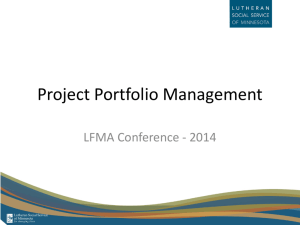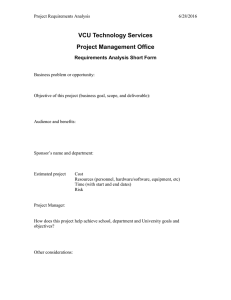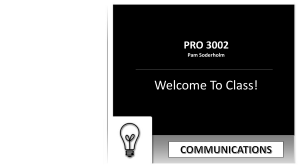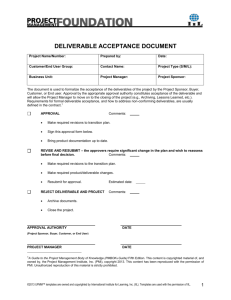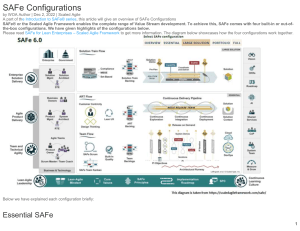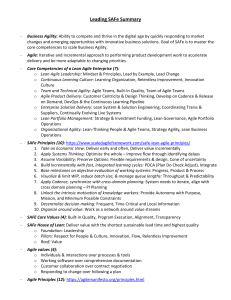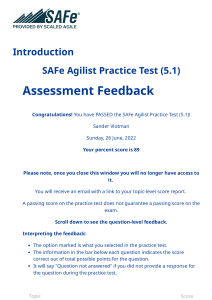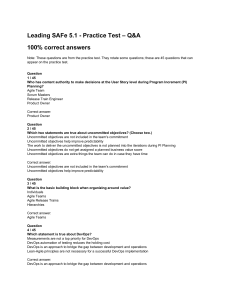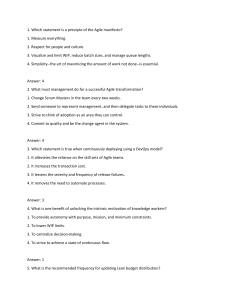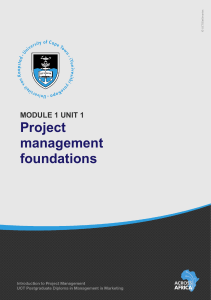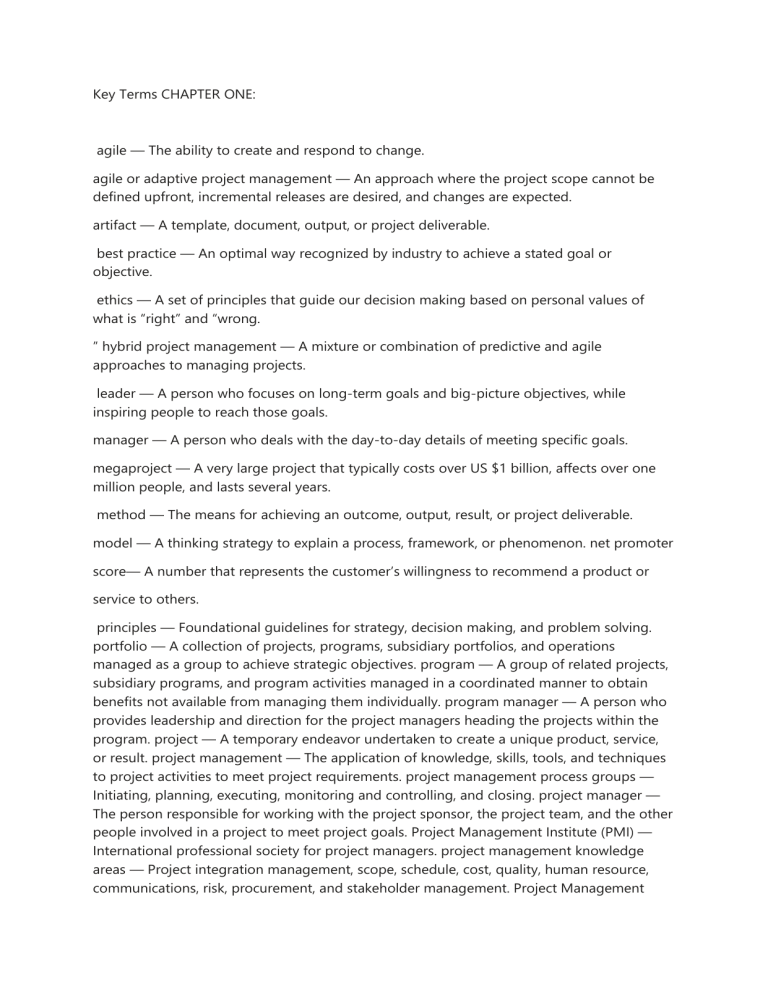
Key Terms CHAPTER ONE: agile — The ability to create and respond to change. agile or adaptive project management — An approach where the project scope cannot be defined upfront, incremental releases are desired, and changes are expected. artifact — A template, document, output, or project deliverable. best practice — An optimal way recognized by industry to achieve a stated goal or objective. ethics — A set of principles that guide our decision making based on personal values of what is “right” and “wrong. ” hybrid project management — A mixture or combination of predictive and agile approaches to managing projects. leader — A person who focuses on long-term goals and big-picture objectives, while inspiring people to reach those goals. manager — A person who deals with the day-to-day details of meeting specific goals. megaproject — A very large project that typically costs over US $1 billion, affects over one million people, and lasts several years. method — The means for achieving an outcome, output, result, or project deliverable. model — A thinking strategy to explain a process, framework, or phenomenon. net promoter score— A number that represents the customer’s willingness to recommend a product or service to others. principles — Foundational guidelines for strategy, decision making, and problem solving. portfolio — A collection of projects, programs, subsidiary portfolios, and operations managed as a group to achieve strategic objectives. program — A group of related projects, subsidiary programs, and program activities managed in a coordinated manner to obtain benefits not available from managing them individually. program manager — A person who provides leadership and direction for the project managers heading the projects within the program. project — A temporary endeavor undertaken to create a unique product, service, or result. project management — The application of knowledge, skills, tools, and techniques to project activities to meet project requirements. project management process groups — Initiating, planning, executing, monitoring and controlling, and closing. project manager — The person responsible for working with the project sponsor, the project team, and the other people involved in a project to meet project goals. Project Management Institute (PMI) — International professional society for project managers. project management knowledge areas — Project integration management, scope, schedule, cost, quality, human resource, communications, risk, procurement, and stakeholder management. Project Management Professional (PMP®) — Certification provided by PMI that requires documenting project experience, agreeing to follow the PMI code of ethics, and passing a comprehensive exam. project management tools and techniques — Methods available to assist project managers and their teams; some popular tools in the time management knowledge area include Gantt charts, network diagrams, critical path analysis, and project management software. project performance domain — A group of related activities that are critical for the effective delivery of project outcomes. project portfolio management — The grouping and managing of projects and programs as a portfolio of investments. project sponsor — The person who provides the direction and funding for a project. scrum — A lightweight framework that helps people, teams and organizations generate value through adaptive solutions for complex problems. stakeholders — People involved in or affected by project activities. triple constraint — Balancing scope, schedule, and cost goals. value — The worth, importance, or usefulness of something. waterfall, predictive, or traditional project management — Terms used to describe an approach where most of the project planning is done upfront, there is a single final product, service, or result delivered at the end of the project, change is constrained, costs and risks are controlled, and stakeholders are involved at specific milestones.
